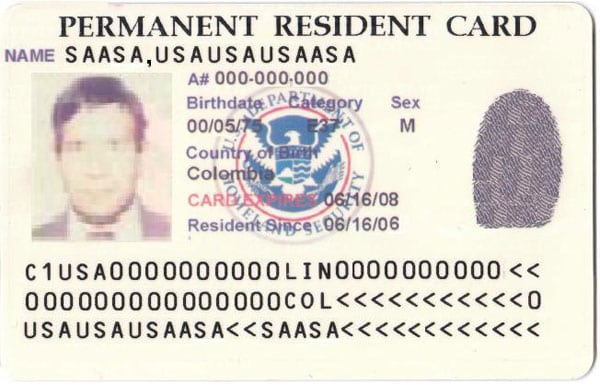
August 7, 2018; NBC News and The Hill
The premise that the Trump administration is not opposed to all immigration to the United States but just to “illegal immigration” may now be stood on its head, as a significant change to immigration policy is about to take place. Under the proposed policy, if you legally migrate to the US and accept government benefits—such as Obamacare, or other commonly used subsidy programs like SNAP (food stamps) or children’s health care—your odds of being granted permanent residency (i.e., a green card) and citizenship would go down. The policy does not require Congressional approval and would constitute the most sweeping change in decades, leaving many families who are already living here legally in limbo as to their welfare and status.
Julia Ainsley, reporting for NBC News, indicated that:
Details of the rulemaking proposal are still being finalized, but based on a recent draft seen last week and described to NBC News, immigrants living legally in the US who have ever used or whose household members have ever used Obamacare, children’s health insurance, food stamps and other benefits could be hindered from obtaining legal status in the US.
Immigration lawyers and advocates and public health researchers say it would be the biggest change to the legal immigration system in decades and estimate that more than 20 million immigrants could be affected. They say it would fall particularly hard on immigrants working jobs that don’t pay enough to support their families.
Sign up for our free newsletters
Subscribe to NPQ's newsletters to have our top stories delivered directly to your inbox.
By signing up, you agree to our privacy policy and terms of use, and to receive messages from NPQ and our partners.
Indicators show that a version of this plan has been sent to the Office of Management and Budget, which is the final step before it is published as a rule in the Federal Register. Once published, there will be time for public comment, but it is unlikely that the administration will take notice of those comments given their sense of the need for these new rules.
And why do we need these “protections” from adding others to our citizen rolls who have come to this country legally, worked, and paid taxes and now seek to make their commitment to the US permanent? Speaking to The Hill, a Department of Homeland Security spokesperson stated, “The administration is committed to enforcing existing immigration law, which is clearly intended to protect the American taxpayer by ensuring that foreign nationals seeking to enter or remain in the US are self-sufficient. Any proposed changes would ensure that the government takes the responsibility of being good stewards of taxpayer funds seriously and adjudicates immigration benefit requests in accordance with the law.”
The irony is that “protecting the American taxpayer” via this new plan punishes a group of people for availing themselves of benefits (healthcare, food subsidies, and benefits for members of their families who are disabled) that would allow them to move up the economic ladder and possibly out of poverty into a self-sustaining lifestyle. Now, these new rules put them in the dilemma of having to choose between what they need to live now and a future that could mean deportation. Families that have used Obamacare, the children’s health care program, SNAP, or other subsidy programs now face a future in which they can be punished for using those services. Will this make them need this help less? Perhaps not. But they might now choose not to use it, and that could mean more children in school without access to health care and more families scrounging for food and waiting in lines at food pantries that do not ask for identification. In short, more people in poverty.
The consequences for the health and well-being of people already in this country, as well as for those who look to the US as a possible place of safety and refuge, are compromised with these changes. Perhaps the statement from the National Immigration Law Center said it best: “Any policy forcing millions of families to choose between the denial of status and food or health care would exacerbate serious problems such as hunger, unmet health needs, child poverty and homelessness, with lasting consequences for families’ wellbeing and long-term success and community prosperity.”—Carole Levine













